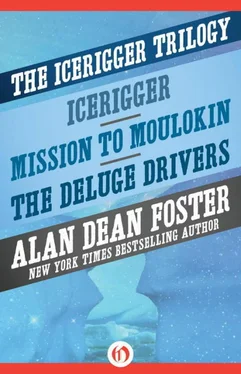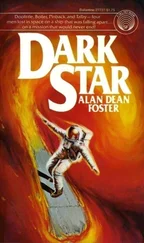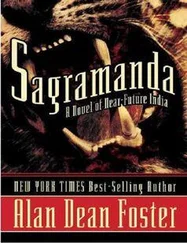“The five grooves of their runners continue southward outside this passage, sire,” the scout added helpfully, currying favor.
Rakossa ignored him. “Would that we knew the extent of their damage. Yet it took them time to make their way through this ridge.” The masses of ice nearby showed how the icerigger had made that passage, and Rakossa marveled greedily at the power of a ship that could move such weight.
“They are delayed.” He knelt, brushed at the powdery ice lining the runner grooves. “This has not blown away completely, even with the force of the rifs. They are very near, and yet will now widen the distance between us once more.”
“Nevertheless, we will catch them, your highness,” said Calonnin Ro-Vijar.
“Yes. We will catch them, and the mocking strumpet as well.”
Rakossa turned to gaze at the ships waiting behind them. They were a reassuring sight, with sails half-furled and pennants flying. They pursued with a small forest of masts—those that hadn’t been torn away by the storm. And they had caught only the fringe of the rifs.
“But we will catch them with thirty ships instead of thirty-five. Three are so badly damaged their captains inform me they will never sail again. Two are nearly as bad off, but they can limp home with the crews of the abandoned three. Five ships lost already, Ro-Vijar.”
“All the reason more to seek revenge upon those responsible, my friend,” responded the Landgrave of Arsudun, trying to turn calamity to mental advantage. It was Rakossa’s emotional state that was critical, not the condition of his ships.
“Perhaps.” Rakossa spoke thoughtfully. “We waste time here.” One foot descended, three chiv sectioned a fragment of wood the scout had recovered and marked the ice beneath.
Two weeks after leaving the pressure ridge, the Slanderscree came upon the plateau. A hundred meters of sheer cliff, it stretched off to east and west in unbroken basaltic glory. It was a barren-looking place, devoid of rim-clinging trees such as decorated the cliffs of Arsudun.
Teeliam was brought on deck, shown the impenetrable ramparts reaching across the ice ocean. “There lies Moulokin,” she said with evident satisfaction.
“Moulokin? Where?” Hunnar didn’t try to hide his sarcasm. “I see naught but ice, rock and sky. In that order, without exception.”
“Nevertheless, this is the region of Moulokin.”
“And where is the fabled city?”
“Could it be atop the plateau somewhere, Teeliam?” asked Ethan softly.
“No, that is absurd.” The former royal consort of Poyolavomaar took little notice of Ethan’s courtesy, as opposed to Hunnar’s skepticism. “How could a state famed for the ships it builds be located many kijat above the ocean?”
“The thought had occured to me,” said Ethan drily. “I was just pointing out that I see no sign of any city.”
“Moulokin is here somewhere.” Teeliam’s conviction was unfazed. She faced the stone barrier. “Somewhere within this land.”
Ethan and Hunnar exchanged glances. Then Ethan asked, “Which way? We must be off in our calculations.”
Teeliam considered stories and rumors and legends. “’Tis told the sun sets late in Moulokin,” she muttered to herself. Then she pointed westward. “I would suppose that way.”
“As you will.” Hunnar executed a Tran shrug. “’Tis this way or that, as well one as the other.” He relayed instructions to a mate, who conveyed them to another, who shouted them to the helmdeck.
The icerigger turned laboriously to the west, commenced making difficult progress into the wind.
Despite Ta-hoding’s best efforts, their progress was slow. Cliffs grew near, then receded as the Slanderscree tacked away from them, though never so far that land was out of sight. It wouldn’t do to slip past their destination while making distance into the wind.
Occasionally there would be a sharp dip in the crest of the plateau where a hanging valley emerged. When the icerigger was on a starboard tack, the lookout in the mainmast basket could see into such gaps in the rock wall. Some held trees that apparently shunned the top of the plateau itself, but none showed any sign of habitation, not of the fabled ship building city of Moulokin or of a single Tran hermit.
Days became a week, the week two, without a break in the cliffs. From time to time the plateau would reach outward or ripple inward, forcing them to alter their heading slightly. But never did it vanish or vary its general east-west orientation.
By the beginning of the third week, however, the plateau began to curve gradually southward. Ethan mused on the distance they had come to the west. Nor was there any way of telling how far the cliffs extended westward.
“According to the mestapes I took long ago, back on the ship traveling here,” Ethan was telling September, “survey work had been very limited on this world. Arsudun was the largest populated island the first team found, so they put the humanx station there. But this,” and he gestured expansively at the towering ramparts, “it’s either an island-sized continent, or a continent-sized island.”
“It’s plain enough, feller-me-lad,” the giant commented, “that we’ve found no mere mountaintop stickin’ its head above the ocean.”
Hunnar joined them, braking to a halt on the starboard icepath, turning his chiv at the last moment so as not to shower them with ice. His excitement was evident from his expression and the fact that he almost forgot to lower his dan. September caught him as he stumbled forward, nearly fell. He was so preoccupied he forgot to produce an excuse for his clumsiness.
“We have found the tracks of a ship! They travel parallel to this high land also, but they approach from the east before turning south.”
“Maybe someone else’s calculations were a little off,” said an equally animated Ethan.
“Mayhap.” Hunnar regained some of his usual dignity. “This may mean only that another raft is exploring or lost.”
“Sure. But if the Moulokinese do most of their trading with peoples to the south and west away from that pressure ridge we crossed, it would explain why we’ve encountered no tracks before now, and why they’re so little known in Poyolavomaar.” Hunnar’s excitement had proven infectious. “Not to mention in far-off Arsudun.”
“All possible, all possible.” The knight’s eyes flashed in the midday light. “We shall see.”
The next day they came across two additional sets of ship tracks. Like the first, these approached from the east before turning south.
“If Moulokin does lie along this plateau,” Ethan was saying, “then any shipmaster knows he only has to encounter it before turning south or north.”
The actual discovery, when it occurred, was anti-climactic. One moment the Slanderscree was racing southward, its speed faster now that it wasn’t running into the wind. The next, the fore lookout was yelling loudly to any who could hear.
Off-duty crew rushed to the port rail for a glimpse of a myth become real. From the day they had first encountered the cliffs of the plateau, it had taken them nearly a standard month to reach their present position. Ethan couldn’t estimate how far they’d come. But it was far enough to convince him that Tran-ky-ky could now boast at least one true continent in addition to its thousands of islands scattered spice-like across its endless ice seas.
At the same time he understood why those islands rather than this landmass of considerable but inexact extent were chose by the Tran for their towns and cities. Islands offered easy access to fields of pika-pina and pedan, access to the ice ocean on which all commerce moved. Everything they had seen of the broad plateau hinted at an interior as barren as the lowliest tundra.
Читать дальше










